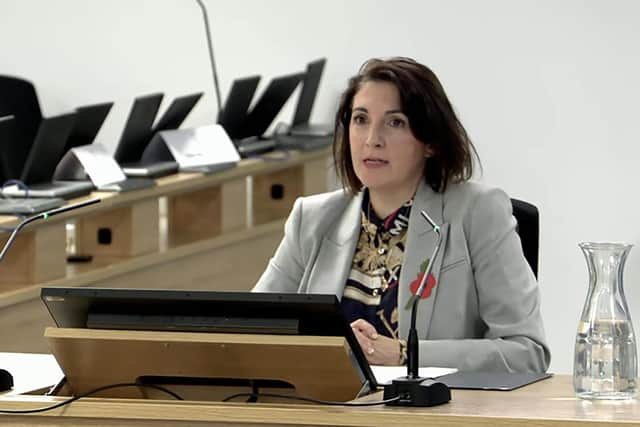Government's bullish approach to pandemic proved costly - The Yorkshire Post says
As revelations about the actions of the Prime Minister and in the Cabinet Office at the height of the pandemic are made public, it begs the question how did it get to that stage.
Politics is not a game. It has consequences for millions of ordinary people. And in the case of Covid, it cost thousands of people their lives.
Advertisement
Hide AdAdvertisement
Hide AdYet in Boris Johnson the country didn’t have a genuine leader but someone who wanted to play Prime Minister. As a result, what is emerging is a picture of chaos when clarity was most needed.


Downing Street displayed an “unbelievably bullish” and dismissive approach to coronavirus early in the pandemic, according to Helen MacNamara. It even involved “laughing at the Italians”, Ms MacNamara, who served as deputy cabinet secretary during the pandemic, said.
More worryingly, she also said there was an “over-ideological” approach to decision-making and an “absence of humanity”.
The sad truth is that this hubris led to hundreds of thousands of people paying the price. These aren’t punchlines on a satirical TV show that can be just brushed off.
Advertisement
Hide AdAdvertisement
Hide AdWhile the Covid Inquiry looks to secure some sort of closure for those who lost loved ones as a result of the Covid crisis, the legacy of the pandemic will be with us in many ways.
Researchers have suggested that lockdowns and other restrictions brought in during the pandemic have had a “real lasting impact” on the brain health of people over the age of 50.
It raises the question of whether people are at a potentially higher risk of cognitive decline which can lead to dementia.
